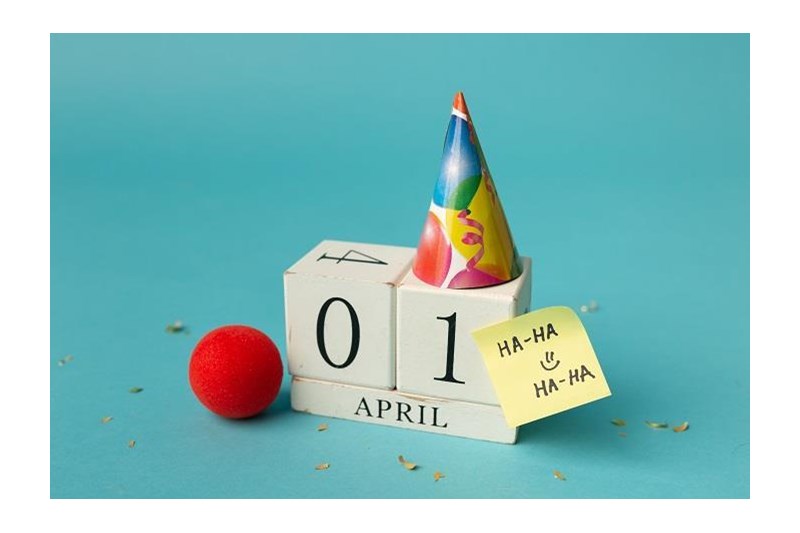April Fools?
Published: 12/04/2024
Clementine Rees Brown discusses overcoming social embarrassment.
Call me a traditionalist, but I have always found that there is always something satisfying about the opportunity to describe someone as “a fool”. There are other more colourful and shocking terms bandied about of course, but occasionally, there is no need for ‘bluer’ language when a simple classic can be so cutting. With April’s arrival, along with longer days and the cheerful blossoming of spring, we begin the month with the ever-whimsical April Fool's Day. This provides an opportunity to play jovial pranks on friends (memories of my bedroom completely covered in wrapping paper spring to mind!) or even bring some light-hearted fun into the workspace. But whilst it is acceptable or even enjoyable if it happens on April 1, on any other day of the year we do everything possible to avoid being made to look like ‘a fool’!
Even if you are not naturally predisposed towards social embarrassment, the moments in life that tend to come back and haunt us during sleepless nights are those in which we were, accidentally or not, made to look foolish. At school, it might have been anything from confidently shouting out the wrong answer in class (guilty), or realising a choice piece of toilet paper decided to attach itself to your shoe. As adults, however, the stakes are far higher. There is more pressure to be seen as ‘put together’, and therefore the risk of appearing foolish can seem all the more perilous. In our personal lives, placing trust in a partner, friend or family member (thereby giving them the power to make a fool out of you) is an inevitable risk we must take in order to nurture any kind of meaningful relationship. The American professor, author and podcaster Brenee Brown calls this, “The power of vulnerability”, something she defines as, “not about winning, and not about losing; it’s about having the courage to show up and be seen when we have no control over the outcome.” This paradox of potentially looking foolish and an uncertain outcome in exchange for growth and authenticity also extends to our careers. How many of us in the past have been offered the opportunity to stand out and appear not only competent but great at what we do, only to turn it down due to the fear that when the moment comes, we might fail and look a fool?
For many, this kind of negative thinking can lead to an ongoing case of ‘Imposter syndrome’ briefly defined as, “self-doubt of intellect, skills or accomplishments”. In recent years, this topic has become more widely discussed, particularly when seeking solutions to such a common issue as professional self-doubt. In this month's Dental Nursing, we focus on a number of ways in which confidence can be built up and mistakes avoided, including the power and positive impact of mentorship throughout a career (Elizabeth da Corte discusses this in ‘The magic of mentorship’ and Francesca Robson offers her thoughts in ‘Make or break’). After all, what better way to minimise the chances of looking or feeling foolish, than opening yourself up to a mentor who can guide you against potential pitfalls, whilst also helping you fulfil your true potential?
As well as the stability and confidence an excellent mentor can provide, it seems more important than ever to nurture a community of celebration within dentistry. To highlight the vital nature of a supportive and caring practice to a young trainee dental nurse fresh in the field, Casey Morris discusses the trials and tribulations that she once faced in ‘Confidence is key’, and the difference finding a nurturing environment of supportive colleagues can make.
So whilst it is important to celebrate and support dental nurses at every stage of their career (see Preetee Hylton's interview with ‘Dental Nurse of the Year North’ and ‘Overall Dental Nurse of the UK’ winner Shannon Wilkes ‘The importance of appreciation’, and Mark Garner’s interview with Amy Ciobanu on her winning of the ATU Dental Graduate Award, a word to the wise might be to understand what gives those awards meaning. As you get older and wiser you begin to understand that it is the support of colleagues that is important, the appreciation of hard work and the acknowledgement of a dental nurse’s dedication that is the real reward. It is not the praise, the glamorous pictures for social media or the physical award that sits on your mantle – to want focus on that, you really would have to be a fool.
Author: Clementine Rees Brown

.jpg?width=300&height=200&scale=canvas)







.jpg?width=150&height=100&scale=canvas)



